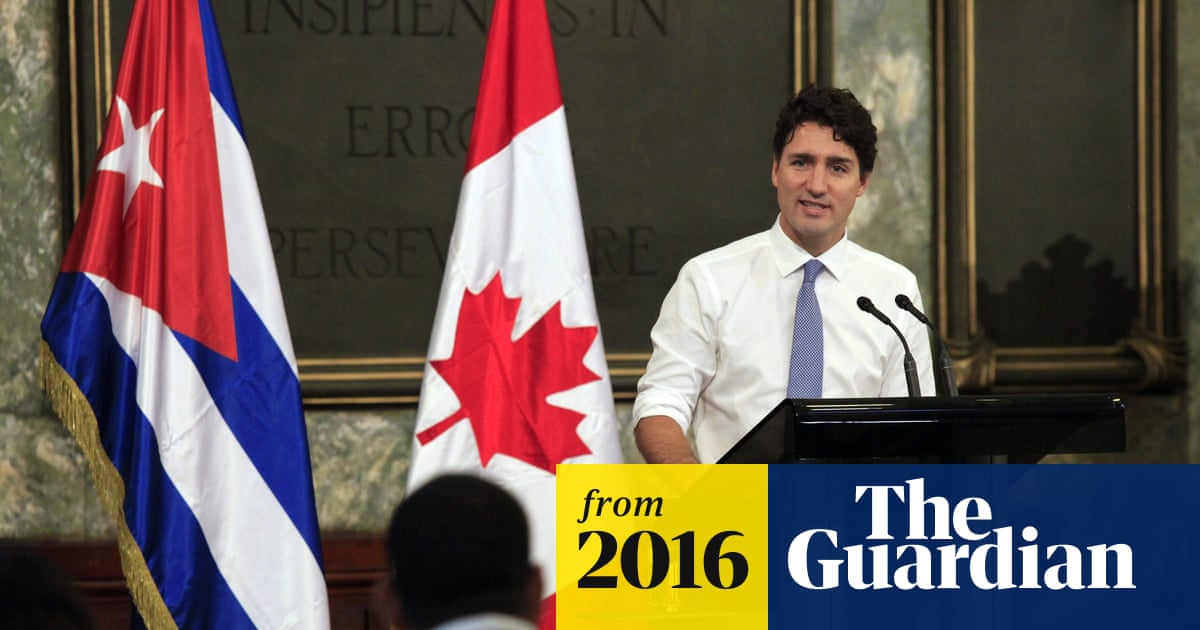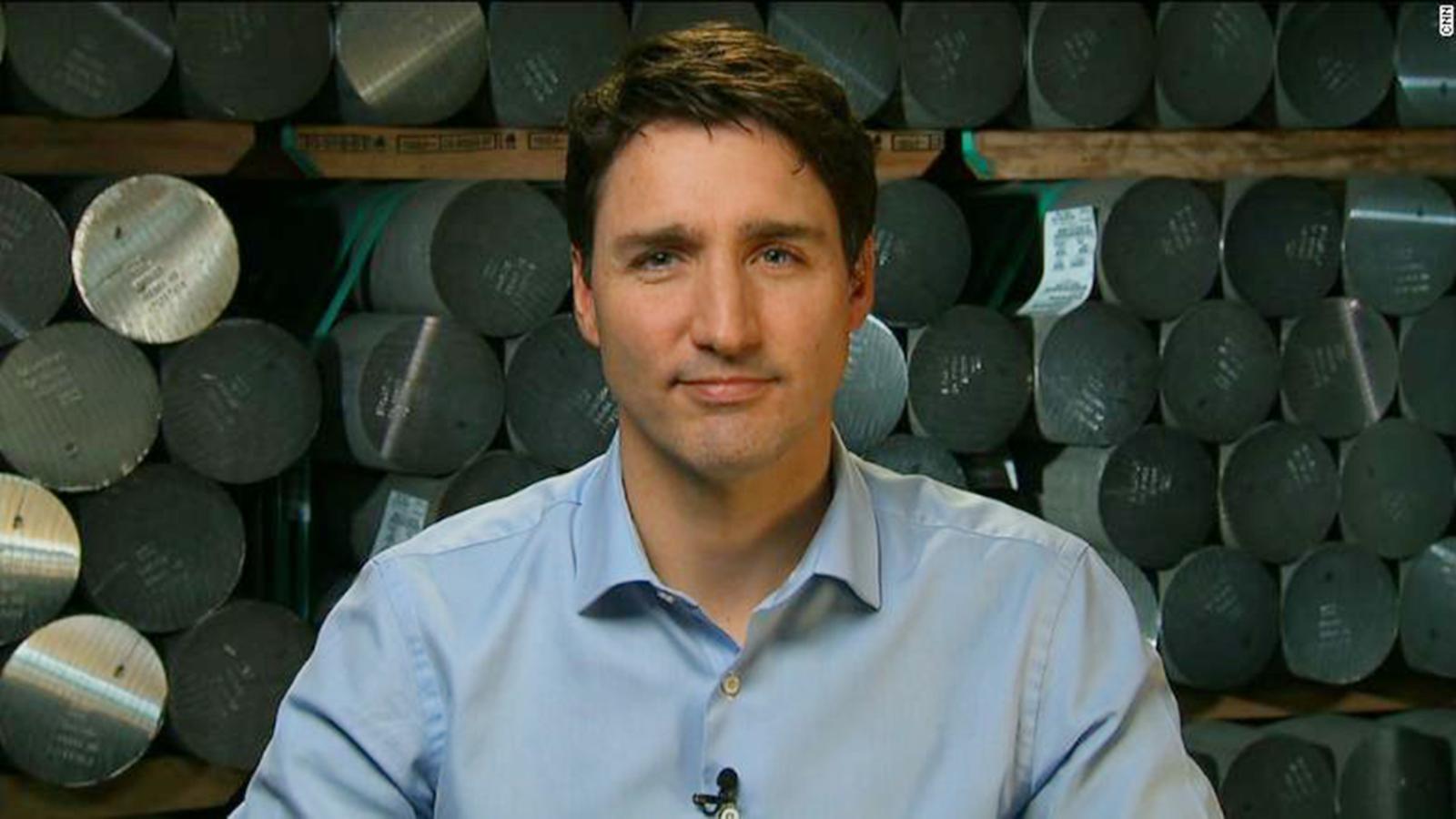Justin Trudeau Castro: Exploring The Connections And Impacts
Justin Trudeau Castro is a fascinating topic that bridges the political narratives of two influential leaders from different parts of the world. While Justin Trudeau represents Canada, Castro represents a legacy tied to Cuban politics. This article dives deep into the connections, differences, and impacts of these two figures on global diplomacy and leadership.
The world of global politics is filled with stories of leaders who have left an indelible mark. In this context, exploring the intersection between Justin Trudeau and Castro offers a unique perspective on leadership styles, cultural influences, and international relations.
This article aims to provide a comprehensive analysis of the relationship between these two leaders, their policies, and their influence on the global stage. Whether you're a political enthusiast, a student, or simply curious about world affairs, this piece will offer valuable insights.
Table of Contents
- Biography of Justin Trudeau
- Background of Castro
- Political Comparisons
- Leadership Styles
- Economic Policies
- Diplomatic Relations
- Cultural Influences
- Public Opinion
- Historical Context
- Future Outlook
Biography of Justin Trudeau
Justin Trudeau, the current Prime Minister of Canada, has been a prominent figure in global politics since taking office in 2015. Below is a brief overview of his life and career:
| Full Name | Justin Pierre James Trudeau |
|---|---|
| Date of Birth | December 25, 1971 |
| Place of Birth | Ottawa, Ontario, Canada |
| Political Party | Liberal Party of Canada |
| Education | Bachelor's degree in Literature (McGill University), Teaching Certification (University of British Columbia) |
| Family | Son of Pierre Trudeau, former Canadian Prime Minister |
Trudeau's rise to power marked a significant shift in Canadian politics, emphasizing progressive policies and international cooperation.
Early Life and Education
Justin Trudeau's early life was shaped by his father, Pierre Trudeau, who served as Prime Minister of Canada from 1968 to 1984. Growing up in a politically charged environment, Trudeau developed a keen interest in public service and social justice.
Political Career
Trudeau entered politics in 2008 when he was elected as a Member of Parliament for Papineau. His progressive policies and charismatic leadership style quickly propelled him to the forefront of Canadian politics.
Background of Castro
The Castro family has played a pivotal role in Cuban politics for decades. Fidel Castro and his brother Raúl Castro have been instrumental in shaping the country's political landscape.
Fidel Castro's Legacy
Fidel Castro, who ruled Cuba from 1959 to 2008, is remembered for his revolutionary leadership and commitment to socialism. His policies focused on healthcare, education, and economic equality, although they were often criticized for human rights violations.
Raúl Castro's Era
Raúl Castro, who succeeded his brother, introduced economic reforms aimed at modernizing Cuba's socialist economy. His tenure marked a shift towards greater openness and engagement with the global community.
Political Comparisons
Comparing Justin Trudeau and Castro offers valuable insights into the differences in governance and ideology:
- Political Ideology: Trudeau advocates for progressive, liberal policies, while Castro's legacy is rooted in socialism and revolutionary ideals.
- Leadership Style: Trudeau is known for his inclusive approach, whereas Castro's leadership was characterized by authoritarian control.
- International Relations: Trudeau emphasizes multilateralism and diplomacy, while Castro's era was marked by tensions with Western powers.
Key Differences in Governance
The governance models of Canada and Cuba reflect the distinct philosophies of their leaders. While Canada prioritizes democracy and individual freedoms, Cuba has historically focused on state control and collective welfare.
Leadership Styles
Leadership styles can significantly impact a nation's trajectory. Trudeau's approach is marked by transparency and inclusivity, while Castro's leadership was defined by resilience and determination.
Trudeau's Approach
Justin Trudeau's leadership style emphasizes collaboration and dialogue. His commitment to addressing climate change, gender equality, and indigenous rights has earned him global recognition.
Castro's Legacy
Castro's leadership was characterized by a strong emphasis on national sovereignty and resistance against external interference. His ability to maintain Cuba's independence in the face of economic sanctions is widely admired.
Economic Policies
Economic policies are a critical component of any leader's agenda. Trudeau and Castro have pursued vastly different approaches to economic development:
- Trudeau's Policies: Focus on sustainable growth, innovation, and social welfare programs.
- Castro's Policies: Emphasize state control, agricultural development, and healthcare infrastructure.
Impact on Society
While Trudeau's policies aim to create a balanced economy that benefits all citizens, Castro's legacy has left a lasting impact on Cuba's healthcare and education systems, despite economic challenges.
Diplomatic Relations
Diplomatic relations play a crucial role in shaping global politics. Trudeau and Castro have approached international relations from different perspectives:
Trudeau's Diplomacy
Justin Trudeau has prioritized strengthening ties with allies and promoting peace through international organizations like the United Nations. His efforts to address global issues such as climate change and refugee crises have earned him praise.
Castro's Influence
Castro's diplomatic strategy focused on building alliances with non-Western nations and resisting Western domination. His leadership played a key role in the Non-Aligned Movement and other international forums.
Cultural Influences
Culture shapes the way leaders are perceived and remembered. Trudeau and Castro have left distinct cultural imprints on their respective nations:
Trudeau's Impact
Trudeau's commitment to multiculturalism and diversity has resonated with Canadians and people around the world. His advocacy for LGBTQ+ rights and indigenous reconciliation reflects a modern, inclusive vision of society.
Castro's Legacy
Castro's cultural influence is evident in Cuba's vibrant arts scene and commitment to preserving its revolutionary heritage. Despite economic hardships, Cuba remains a cultural powerhouse in Latin America.
Public Opinion
Public opinion plays a crucial role in evaluating the success of leaders. Trudeau and Castro have elicited mixed reactions from their respective populations:
Trudeau's Popularity
Justin Trudeau enjoys widespread support for his progressive policies, although critics argue that his government has struggled to address issues such as housing affordability and climate action.
Castro's Legacy
Castro's legacy is viewed through a complex lens. While many Cubans appreciate his efforts to improve healthcare and education, others criticize the lack of political freedoms and economic opportunities.
Historical Context
Understanding the historical context of Trudeau and Castro's leadership is essential for evaluating their impact:
Canada's Political Evolution
Canada's political landscape has evolved significantly over the years, with Trudeau representing a new generation of leaders focused on social justice and environmental sustainability.
Cuba's Revolutionary Journey
Cuba's history is closely tied to the Castro family's leadership. The revolution of 1959 marked a turning point in the nation's trajectory, leading to decades of socialist governance and resistance against external pressures.
Future Outlook
The future of global politics will be shaped by leaders like Trudeau and Castro. As the world grapples with challenges such as climate change, inequality, and geopolitical tensions, the lessons from their leadership can guide future generations:
Justin Trudeau's emphasis on inclusivity and cooperation offers a blueprint for addressing global issues, while Castro's resilience and commitment to national sovereignty remind us of the importance of self-determination.
Key Takeaways
In conclusion, the intersection of Justin Trudeau and Castro provides valuable insights into the complexities of global leadership. While their approaches differ significantly, both leaders have left a lasting impact on their nations and the world.
Kesimpulan
Justin Trudeau Castro represents a fascinating exploration of two distinct leadership styles and their impact on global politics. From progressive policies to revolutionary ideals, this article has highlighted the key aspects of their legacies.
We invite you to share your thoughts in the comments section and explore other articles on our website for more in-depth analyses of world affairs. Together, we can foster a deeper understanding of the leaders who shape our world.
For further reading, consult reputable sources such as United Nations, CIA World Factbook, and BBC News for up-to-date information on global leaders and their policies.
Article Recommendations

